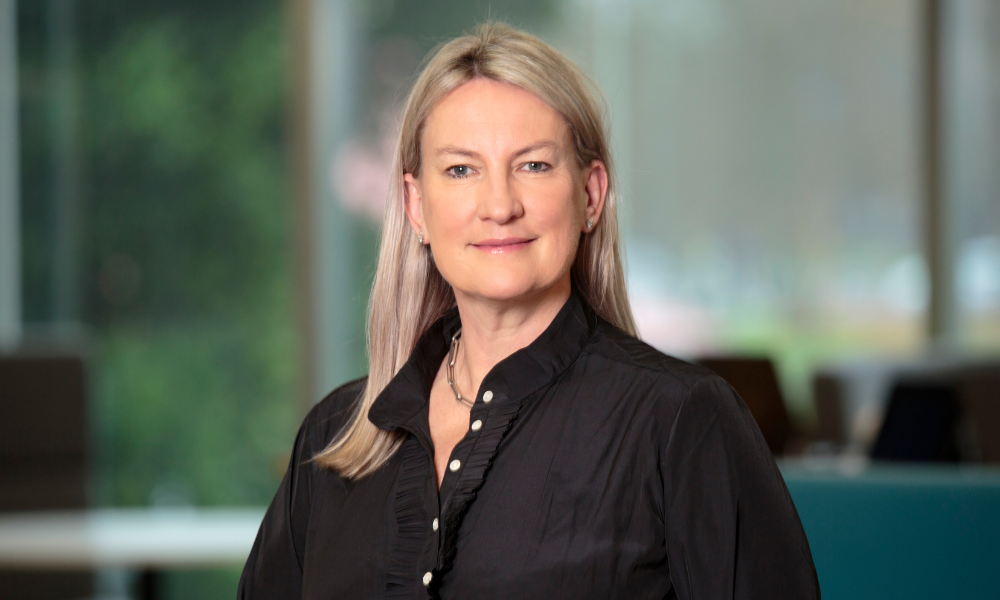
'You need to deeply understand the business, what makes it unique, what makes it profitable,' says Kate Daly, managing director of people & culture at Fonterra

When Kate Daly was studying pharmacology and economics at university, she hadn’t heard of human resources, so it was by chance she found her way into the field she now loves.
As managing director of people & culture at Fonterra, and with 27 years’ experience in the profession, Daly was recently listed on the Global 100 for HR in 2023.
The skills she learnt during her BCom BSC still serve her well in her HR career, she says.
“It really helps me commercially understand the business and I think that's critical for all those in people and culture because you need to deeply understand the business, what makes it unique, what makes it profitable, and what risks your business has. That helps you to think about what people solutions or people strategies you need to put in place to help the business go further and faster.”
Prioritising time, keeping calm under pressure
Prior to studying at the University of Auckland, Daly had qualified as a nurse – another profession she says has provided skills that have proved invaluable in HR.
“You learn when you’re nursing to remain calm under pressure, to assess the situation using all the facts,” says Daly, who prior to Fonterra had been director of people and communications at BNZ, and before that, chief people and communications officer, HR at Fletcher Building.
“And you're looking at a wide range of scenarios, or things that could have happened while you're trying to work out what you need to do.”
As a nurse, you also learn how to prioritise your time and make sure you're spending it on the things that are most important, she says, “so I think some of those skills have definitely helped me.”
Unique model provides diversity
In her role now at Fonterra, Daly sits on the leadership team, reporting to the CEO. The organisation involves 20,000 people globally, so her role spans across a large and complex operation, from New Zealand where milk is collected and processed, to markets where the consumer business is based, including the Middle East, South East Asia, Europe and the Americas.
“I love the scale and the complexity. No two days are the same and you have to be across a really large operation,” says Daly.
“I enjoy the diversity of work and of the organisation in terms of what we do, from manufacturing and supply chain, through to out in markets. I also really love that it is a cooperative and we're here to service our farmer shareholder owners. It's a very unique model.”
Automation in HR
Recently the organisation launched a new people and culture operating model, which has resulted in a significant shift towards automation, she says.
“We’ve moved heavily towards automating as many of our transactions as we can, and removing paper where possible.
“We’ve been very focused around standing up a model that allows our people leaders to actually go in and self-serve to access information instantly and process transactions seamlessly.”
The new processes have helped raise the pace of delivery to the business, says Daly, and further improvements are expected next year with the launch of automation of employment contract generation.
“This speeds up the time to offer so in a really tight labour market - which is where we have been - getting an offer out to people very quickly is really important. Often candidates are in multi processes at the same time, so you want to make sure you're moving them through the interviewing process quickly, you're making that selection, and then getting the contract out really quickly. So it improves our time to offer and also improves the candidate experience.”
Growth mindset and personal development
The organisation’s also invested in building capability, putting new flagship leadership development programmes in place. A significant focus has also been talent management and career pathways, as well as gender diversity, she says.
“We've had a lot of focus around talent and networking, and making sure we've got a really inclusive workplace where our people can flourish. We’ve put a lot of work into our return to work programme post parental leave, so that we're really attracting people, and that people are coming back to work for us.”
Daly emphasises that while a focus is on development of those around her, it’s also vital to remain curious, have a growth mindset and continue to develop personally.
“I'm still learning and developing and growing as a leader, growing as a practitioner, and I've still got plenty of learning and development ahead of me. You always have to challenge yourself to be better and to be really thinking about how you can be the best leader you can, the best colleague, and the best business partner.”